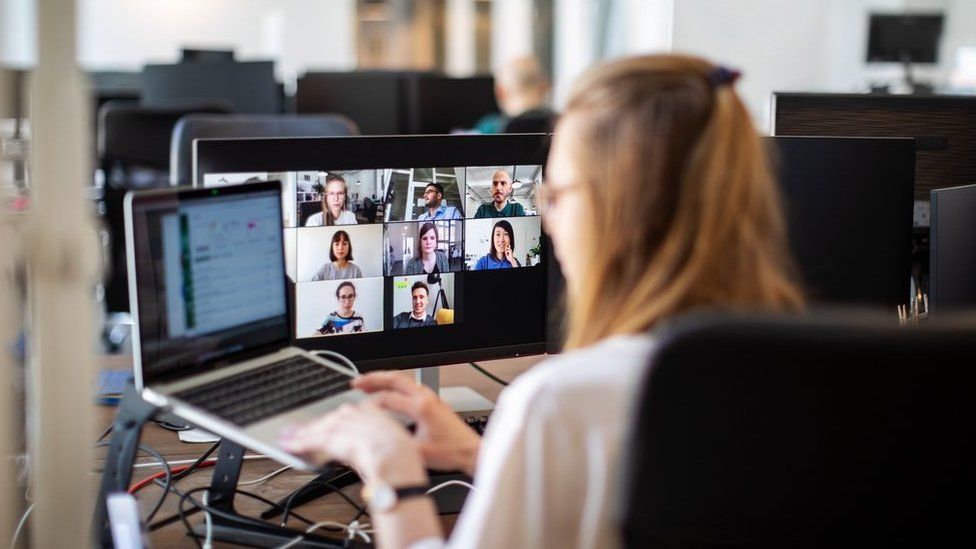ARTICLE AD BOX
 Image source, Getty Images
Image source, Getty Images
By Zoe Kleinman
Technology editor
Businesses should rethink the way staff use their time in offices, says the boss of the messaging platform Slack.
With the rise of hybrid working, lots of people now divide their working week between home and going into their workplace.
But being in the office should be an opportunity to do things that cannot be done at home, argues Stewart Butterfield, Slack's chief executive.
Sitting at a desk with headphones on is not one of them, he says.
Of course the boss of an online messaging platform is not going to go so far as to say staff should leave their laptops at home, but he does say it would "put a strong line in the sand about what the purpose is of getting together".
Slack has headquarters in the US, Canada, Japan, Australia and India.
Reflecting on its offices before the pandemic, Mr Butterfield says: "The 80% of the floor space that we dedicated to kind of factory-farm, battery-chicken housing for people to use their desks all by themselves and listen to their headphones, and not talk to anyone else... was a bit of a waste."
A comfortable environment
Image source, Getty Images
Ongoing renovations are gearing Slack workspace more towards that of a social club, he says, because he wants people to come to work to collaborate and build relationships face-to-face.
"The best thing we can do is create a comfortable environment for people to come together and actually enjoy themselves," he says.
He accepts that some people will choose to work full time in the office because they either cannot or do not want to work from home, and also thinks that young people starting their careers generally prefer to be in the office with their peers.
"It's hard to imagine starting your career fresh out of university, and not going to the office, and not being able to meet all these people in person," he says.
"But I think the the majority of knowledge workers, over time, will settle into some sort of pattern of regular intervals of getting together."
'Should have been an email'
Mr Butterfield is really not a big fan of meetings.
He champions Amazon's idea, introduced by Jeff Bezos, where each attendee reads a six-page memo at the start of a meeting as a briefing note, rather than sitting through PowerPoint presentations.
"There probably are 20% or 30% (of meetings) that don't actually have to be meetings, that would be more effective with written communication," he says, in a nod to the internet meme "this meeting should have been an email".
He also backs what he calls "asynchronous work" - minimising the need to share information in real time.
"So for example, people going around the room and giving their status update, if you can do that asynchronously, and I can record mine at 08:17, and then listen to yours at 09:53 or whatever - that is itself worth a lot," he says.
"I think the place for most teams to invest in is how they do asynchronous work, because we're humans."

 2 years ago
74
2 years ago
74








 English (US) ·
English (US) ·